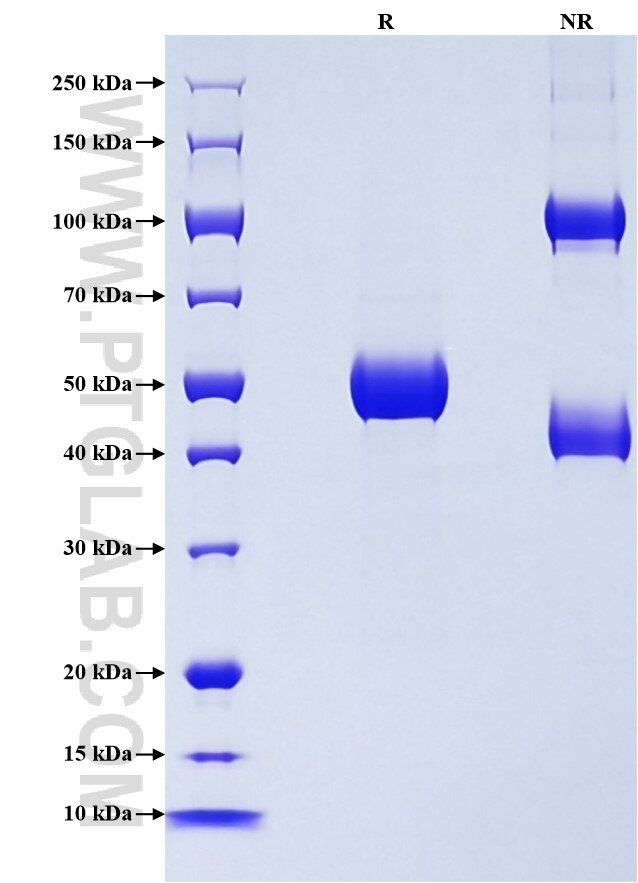Recombinant Human PAEP/Glycodelin protein (rFc Tag)
Species
Human
Purity
>90 %, SDS-PAGE
Tag
rFc Tag
Activity
not tested
Cat no : Eg3037
Validation Data Gallery
Product Information
| Purity | >90 %, SDS-PAGE |
| Endotoxin | <0.1 EU/μg protein, LAL method |
| Activity |
Not tested |
| Expression | HEK293-derived Human PAEP protein Met19-Phe180 (Accession# P09466-1) with a rabbit IgG Fc tag at the C-terminus. |
| GeneID | 5047 |
| Accession | P09466-1 |
| PredictedSize | 44.9 kDa |
| SDS-PAGE | 45-55 kDa, reducing (R) conditions |
| Formulation | Lyophilized from 0.22 μm filtered solution in PBS, pH 7.4. Normally 5% trehalose and 5% mannitol are added as protectants before lyophilization. |
| Reconstitution | Briefly centrifuge the tube before opening. Reconstitute at 0.1-0.5 mg/mL in sterile water. |
| Storage Conditions |
It is recommended that the protein be aliquoted for optimal storage. Avoid repeated freeze-thaw cycles.
|
| Shipping | The product is shipped at ambient temperature. Upon receipt, store it immediately at the recommended temperature. |
Background
Glycodelin (also known as Progestagen Associated Endometrial Protein, PAEP, and Placental Protein 14, PP14) is a secreted human lipocalin-family protein mainly expressed in well-differentiated epithelial cells in human reproductive tissues, like endometrium and seminal vesicles. While different cells produce differentially glycosylated isoforms of Glycodelin: decidualized endometrium-derived glycodelin-A (GdA), seminal vesicle-derived glycodelin-S (GdS), glycodelin-F (isolated from follicular fluid), and glycodelin-C (isolated from cumulus cells). Glycodelin has been involved in cell differentiation and tumor growth.
References:
1. Mrozikiewicz AE, et al. (2021) Int J Mol Sci. 22(18):10082. 2. Huang X, Wu L, et al. (2023) Clin Exp Immunol. 212(3):285-295. 3. Cui J, Shi X, et al. (2023) Front Microbiol. 14:1093668.
